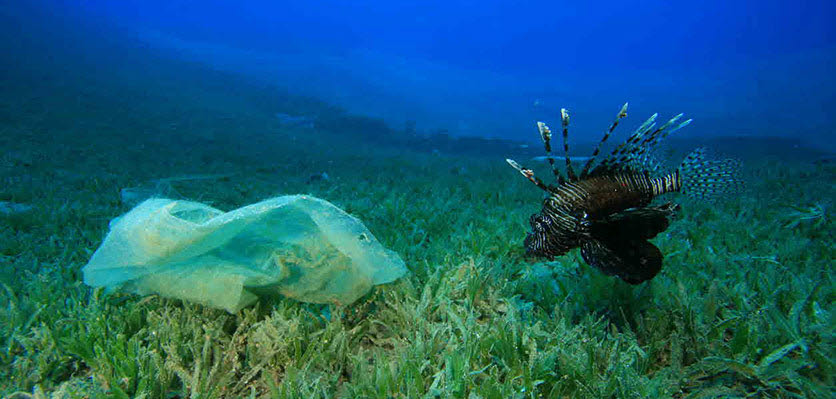
A sea turtle with a straw lodged tightly in its nostril; a seagull with plastic bottle wrapping severely constricting its neck; a seal entrapped in plastic netting – we have all seen the devastating impact large plastic material can have on numerous species of aquatic wildlife. And with plastic waste making up 60–80% of marine debris, the impact on aquatic ecosystems is a massive problem.
What is even more concerning are plastic nanoparticles. Plastic will never break down completely; over time the elements will break it down into tiny nanoparticles and this is where plastics become especially nasty. These plastic nanoparticles are able to pass through biological barriers, penetrate tissue and accumulate in organs, and their physical presence can have detrimental behavioural, physiological and neurological effects on wildlife. Moreover, nanoparticles can be ingested directly or indirectly, which means they can affect entire food chains.
Swedish researchers recently looked at the effects of indirect ingestion of plastic nanoparticles on the behaviour of fish.1 Polystyrene particles of either 53 nm (small) or 180 nm (large) were fed to algae, which were eaten by Daphnia (a species of plankton), which in turn was fed to fish. After 62 days, video analysis was performed to assess the behaviour of the fish.
Compared with control fish, fish ingesting smaller (53 nm) particles
- ate slower
- swam further to eat 50% only of the available zooplankton (they essentially expended more energy for less food, making them more vulnerable to predation)
- explored the aquarium environment less
- had lower activity.
Compared with control fish, fish ingesting larger (180 nm) particles
- ate faster (this was unexpected)
- had higher activity.
The authors suspected this abnormal behaviour was a direct result of nanoparticles accumulating in the brains of the polystyrene-fed fish. So, on day 64, they analysed the brains of the fish. They observed morphological differences and differences in the amount of water in the brains of the fish exposed to plastic compared with control fish and, importantly, were able to detect the plastic nanoparticles in the brains of the fish exposed to the polystyrene.
We know that plastic nanoparticles are able to accumulate in and be passed on to all organisms in the aquatic food chain. This new research shows that these nanoparticles can cause severe behavioural discrepancies in exposed fish, which can affect their overall fitness, making them more vulnerable to predation. If this wasn’t bad enough, we humans are also a part of this food chain, consuming an enormous amount of fish, so the recalcitrant nature of plastic nanoparticles could also have dire consequences on human health.
Although we have curbed our use of plastics, whether by banning plastic bags and micro-beads in beauty products or using more environmentally friendly packaging, we need to ask ourselves, is it too little too late?
Reference
- Mattsson K, Johnson EV, Malmendal A et al. Brain damage and behavioural disorders in fish induced by plastic nanoparticles delivered through the food chain. Sci Rep 2017;7:11452 doi: 10.1038/s41598-017-10813-0.
This article appeared in the November 2017 issue of the Australian Veterinary Journal
